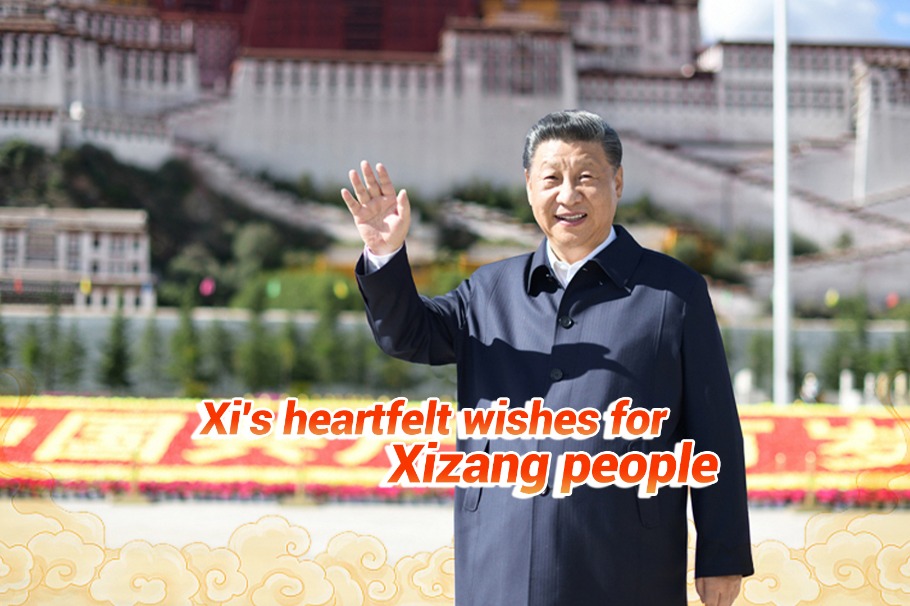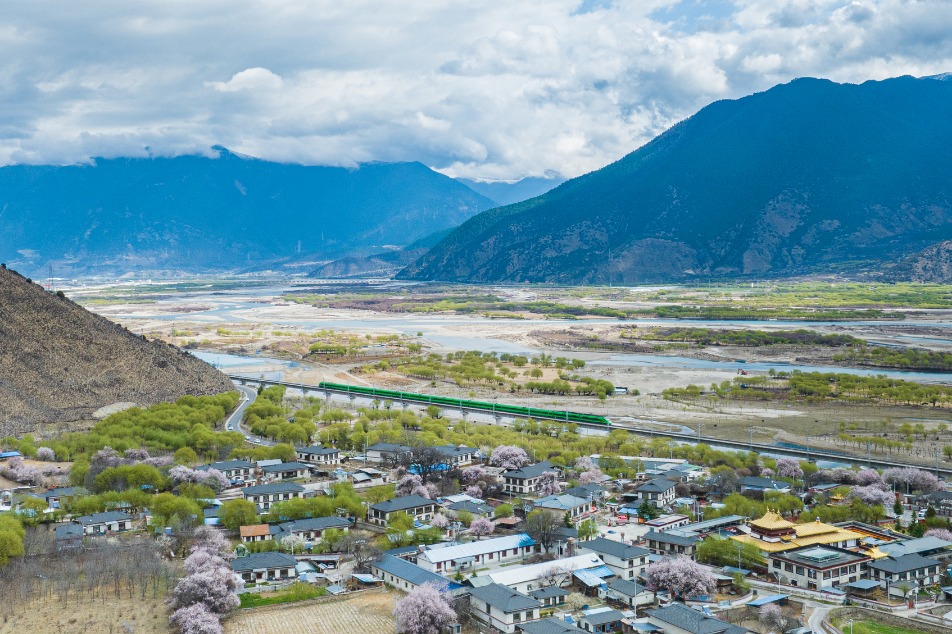Beijing wins applaud over efforts on SDGs

While crises such as the COVID-19 pandemic and the Russia-Ukraine crisis have set the world back, senior officials from the United Nations have acknowledged China's achievements in pursuing the UN's Strategic Development Goals.
Xu Haoliang, UN under-secretary-general and associate administrator of the UN Development Programme, said that to further accelerate the SDGs by 2030, there are four areas crucial for most countries, especially developing countries, to focus on: effective governance, employment and inclusivity, resilience and infrastructure, and urbanization.
"China has made significant achievements in these areas," Xu said on Thursday during a panel discussion moderated by China Daily at the UN SDG Media Zone on the sidelines of the 78th session of the UN General Assembly.
China's infrastructure development, progress in urbanization, and poverty reduction efforts are attributed to its effective governance.
"In the past 40 years, China has lifted 770 million people out of poverty," Xu said. "So without its strong government support and robust employment opportunities, this poverty alleviation would have been impossible."
The Chinese government has also invested significant resources in improving the effectiveness of government operations. For instance, it utilizes e-government processes to support the government and offer various services to the public.
China's commitment to attaining carbon neutrality is actively underway, among other efforts, all of which can serve as valuable examples for developing countries, Xu said.
China's increase in renewable energy power generation last year was twice that of Europe's during the same period, and eight times that of the United States' during the same period in 2012.
China has made tremendous achievements, and its pace of development knows no bounds. Every country must continue to overcome existing challenges and forge ahead. It is a journey every nation undertakes, Xu said.
"While China's development is impressive, it's crucial to remember that China remains the world's largest developing country," Xu said. "The international community and other developing nations can draw valuable lessons from China's experience and receive support from its existing capabilities."
Vital initiatives
He noted that the Chinese government is also researching how to utilize its current capacities to assist in development. Chinese initiatives such as the Global Development Initiative and the Belt and Road Initiative are examples of such assistance.
"From my understanding, China allocated approximately $8 billion annually to support the development of developing countries from 2013 to 2018. These efforts are set to intensify in the future," Xu said.
Li Junhua, under-secretary-general for economic and social affairs at the UN, shares the same sentiments.
"We welcome all the initiatives announced by member states that contribute to the implementation of the SDGs and the 2030 Agenda," Li said during a panel discussion on Monday. "To our knowledge, the Belt and Road Initiative has conducted numerous programs and projects, which covered almost 150 member states."
The GDI has "received a warm welcome" from a number of member states, including the UN entities. "We really hope to see, that as we map out specific programs for the coming years, it will inject more energy and progress toward accelerating the SDGs," Li said.
Today's Top News
- Xizang writes new chapter in development
- White House belies need for TikTok shutdown: China Daily editorial
- China exempts childcare subsidies from individual income tax
- Xi stresses building modern socialist new Xizang
- Xi arrives in Lhasa for celebrations of 60th founding anniversary of Xizang autonomous region
- Xi to review troop formations lining up along Chang'an Avenue during V-Day parade






























